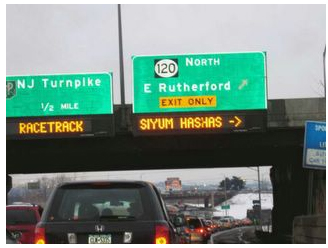 Giving to and Living in Eretz Yisrael
Giving to and Living in Eretz Yisrael

The following excerpt below is taken from volume 2 of the Yalkut ME’AM LO’EZ (pp. 75-77). This was translated by Rav Aryeh Kaplan ZT”L and the translator’s note inserted below is his. The author Rav Yaakov Culi (1689-1732) discusses “Ransoming Captives” in relation to Parshat Lekh Lekha and then writes the following:
(Bold found below is mine.)

In is of particular importance to give charity to the poor in the Holy Land. They take precedence over the poor of other lands. Although, as a general rule, the poor of one’s own city take precedence over the poor of other towns, this only applies to cities outside the Holy Land: The poor in the Holy Land take precedence even over the poor of one’s own city.
The reason for this is that the poor in the Holy Land are like captives. They are in constant danger from their neighbors. Everyone has an obligation to help them, and this is considered ransoming captives.
Letters are brought from the Holy Land by those who collect charity, both with regard to the community as a whole and with regard to individuals, spelling out this obligation, with many quotations from the Talmud and codes. However, they are written in Hebrew and most people cannot read them. If they do not ask others to explain, they have no idea whatever of the troubles that people in the Holy Land encounter.
I would therefore like to tell you something about the poor in the Holy Land, to arouse your hearts so that you will know the greatness of this land, and how much the people who live there suffer. It is very important to know this. Every day, both in the Amidah and in the Grace after Meals, we pray to G-d that he have mercy on us and rebuild Jerusalem. We must therefore know the troubles of those who live there so that we will strive to help them.
[Translator’s note: The author in writing about the situation in his time, over two centuries ago. Much of what he writes, however, is still applicable today.]
G-d decreed that those who live in the Holy Land suffer. They suffer because of crowding, because of the rulers of the land, because of hunger, and because of want. Few are the years when such troubles do not exist.
As the Talmud says, one reason is because the Land of Israel was not given to us through out merit, but through suffering. Whenever there is something that involves great good, the [evil powers of the] Other Side do everything in their power to destroy it. The people that live in the Holy Land are very important. We constantly say, “because of our sins, we remain in exile and the Holy Temple (Beth HaMikdash) sits in ruins.” But still, the Divine Presence (Shekhinah) has never left the Western Wall, which is Jerusalem. The Divine Presence has been taken away from us, leaving us without any good, but it never left this singular place.
Our sages teach that if a person walks four cubits in the Land of Israel he has atoned for all his sins. A person buried in the Holy Land is like one buried under the Great Altar [which was the focal point of the Holy Temple]. From all this, we see how holy the Land of Israel is.
The Other Side therefore strives with all its might to prevent people from settling in the Holy Land. It tries to cause people to emigrate from the Land of Israel. When people remain in the Land of Israel and do not budge an inch, they have a greater merit than anyone else.
A second reason that people in the Holy Land suffer may be related to the fact that G-d causes saints to suffer to test them. It is thus written, “G-d tests the righteous” (Psalms 11:5). Most of the people who live in the Holy Land are very precious in G-d’s eyes, since they experience much suffering and tragedy, including subjugation worse than that of slaves, and they endure in all so as to fulfill G-d’s commandments. They accept everything with forbearance, and do not abandon the Holy Land.
Prayers recited in these holy places are more acceptable to G-d than those said elsewhere. This is the meaning of Jacob’s words, “This is the gate of heaven” (Genesis 28:17). This will be discussed in more detail in its proper place. Prayers said in other lands are accepted because they ascend together with those recited in the Holy Land. In other lands, very few prayers are accepted.
Similarly, when people study the Torah in the Holy Land, it is more precious than such study elsewhere. One reason is that the people in the Holy Land study in great poverty, and such self-sacrifice is precious to G-d. They put all their troubles and suffering out of mind and immerse themselves in study.
There is another reason why prayer and Torah study is more acceptable to G-d in the Holy Land. Unlike other lands, this land is under G-d’s personal direction, not that of any angel. Therefore, prayer and study is more precious.
We who live in other places, and do not have the merit to immigrate to the Land of Israel, have an obligation to help those that live in the Holy Land, so they can live there in peace. When we make it possible for them to pray, our prayers are also accepted.
When we do not help them, they are persecuted by the government there. The first thing they do is close down the synagogues. Even when they do not do that, the Jews musr hide out because of persecution, and the synagogues remain closed automatically. The synagogues remain empty, since the congregations are in hiding.
I myself was born and raised in these places, and I have personally witnessed all these persecutions. Slaves in Malta live better than most people in the Holy Land. Fortunate is the person living elsewhere who worries about the residents of the Holy Land. There is no ransoming of captives greater than this.
This all relates to the situation in general. Now I will speak about details. There are many sages and family men living there in utter poverty; with my own eyes I have seen men dying from starvation. Some of this is for the reasons discussed earlier. However, there is also another reason.
In other countries, the greatest sage is chosen as the rabbi of a city. Other scholars become ritual slaughterers or teachers. There are always people who are willing to have their children tutored. People who are not scholars can always find work with which to earn a living, and they do not have to seek charity. In every city there is some means of earning a living.
This, however, is not presently true in the Holy Land. The cities cannot support the scholars, since the communities do not have the funds. Poor family men cannot find work with which to earn a living, and they do not have to seek charity. In every city there is some means of earning a living.
This, however, is not presently true in the Holy Land. The cities cannot support the scholars, since the communities do not have the funds. Poor family men cannot find work with which to earn a living. Since everyone is poor, there is no one to give them charity or loan them money. Their only means of support in money consecrated toward their support, with the interest sent to the Holy Land. This prevents people from dying of starvation.
Still, the poverty is so great that this money cannot sustain the populace. Therefore, a person who wishes to gain eternal life should strive to send donations to help the impoverished sages and family men in the Holy Land, so that they will be able to pray and study the Torah. Through this, he will be worthy of the World to Come, just as if he himself were there, since it is through him that the people there can exist.
In general, the greatest charity is that given to the poor in the Land of Israel. This is the same as redeeming captives.
There are so many worthy tzeduka’s to give to in Eretz Yisrael. But here are three of them:
Ezras Torah
Paamonim
Kupat Ha’ir (no website but apparently you can call 1-866-221-9352)
I would also like to add that this situation is Eretz Yisrael is not nearly as dire as in was two centuries ago when this was written. Still as Rav Kaplan writes MUCH of what was written above is VERY applicable today. But the reason the situation is less dire is because more and more people are making Aliyah. For example less than a decade ago the area in Israel now called “Ramat Beit Shemesh” was a barren hilltop. Today it is practically a full grown city. It can support grocery stores, schools, doctors, dentists, pharmacies, laundromats, and you get the idea – a full viable economy.
I said it before but every generation of Jews that make Aliyah make it that much easier for the next generation of Jews to come. The suffering becomes more and more diminished as more Jews make Aliyah and help strengthen the economy.
So help Israel by first giving to the above tzeducka’s and then make Aliyah!




0 Comments:
Post a Comment
<< Home